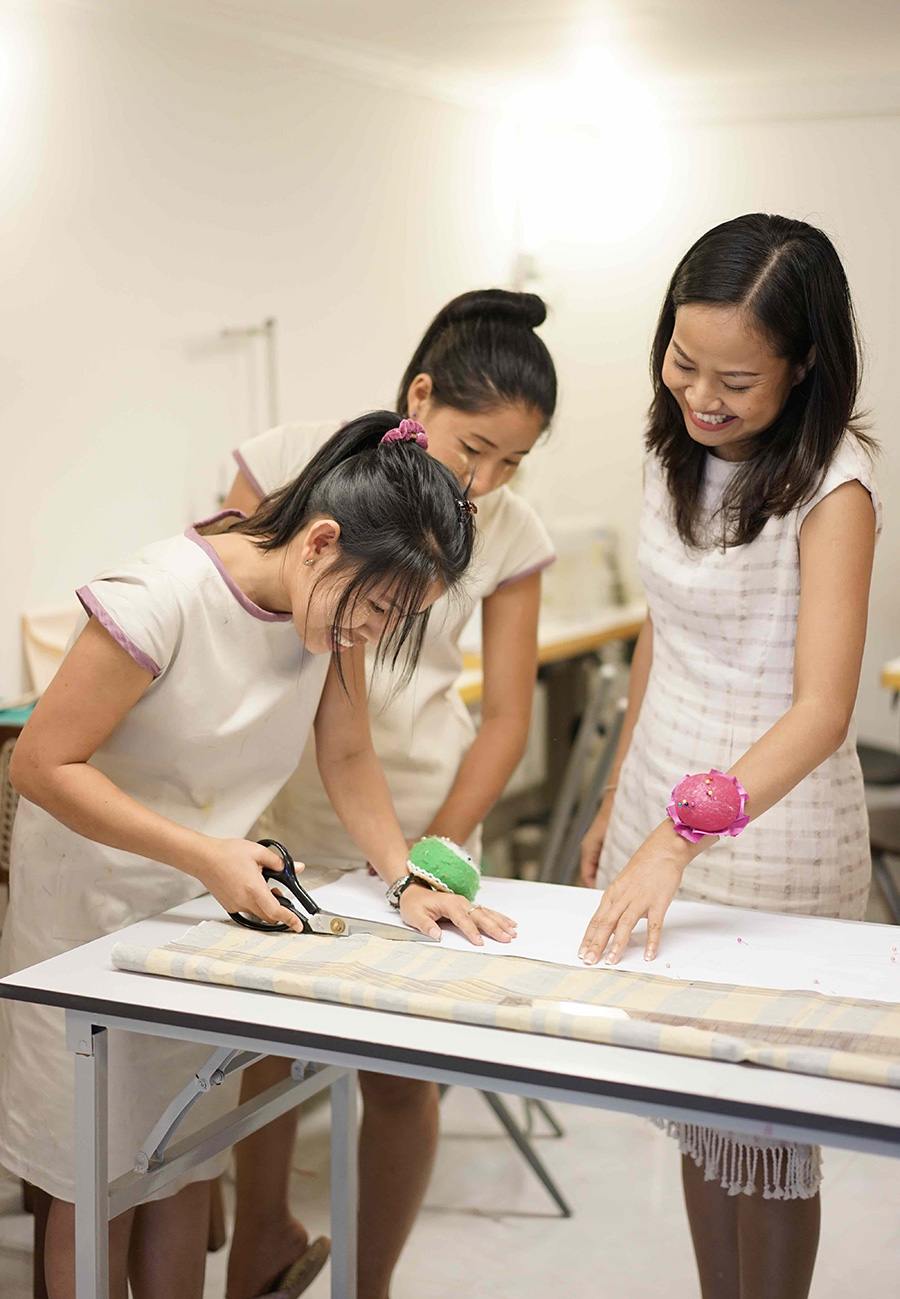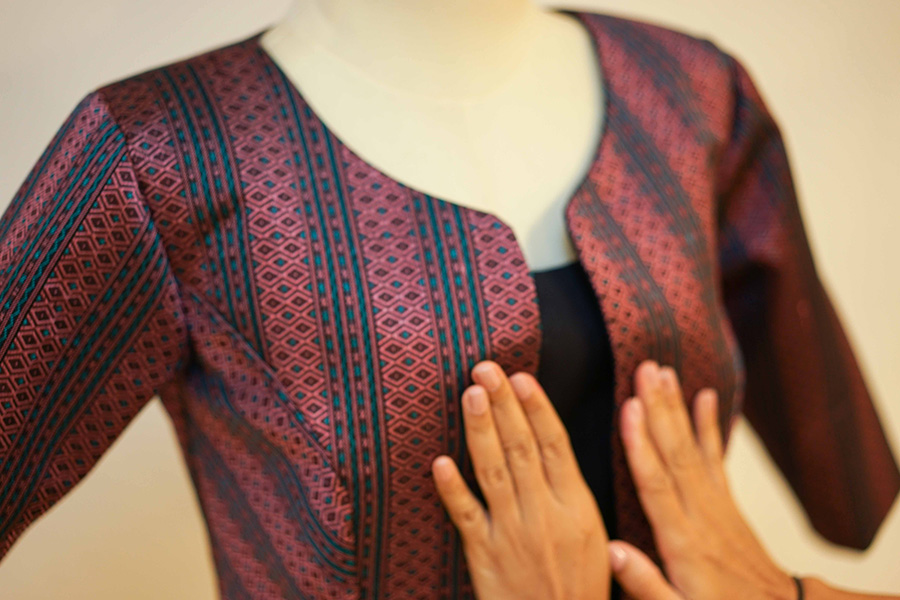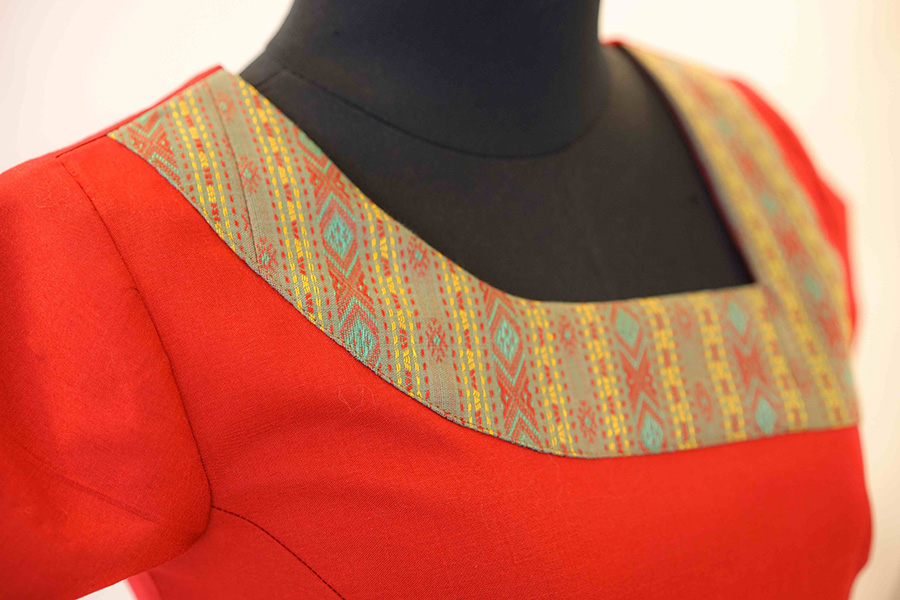YANGON – Modern clothing, bags and shoes featuring fabrics in traditional patterns is an up-and-coming fashion trend in Myanmar today, one that has seen an increase in employment opportunities for women too.
One particularly successful company doing just that is Virya Myanmar, a self-sustaining business which provides work benefits and safe working conditions for its female employees. Workers also benefit from high-quality training programs and an environment where young women feel financially and emotionally independent and can improve their interpersonal skills.
Virya Myanmar founder Ma Pyone Thet Thet Kyaw started the business less than two years ago choosing to make causal, smart-casual, formal and special occasion wear using traditional fabrics.

She had a desire to open a social business for women and girls from underprivileged backgrounds who could benefit from their passion for designs and fashion.
“Those who understand [the concept of a social enterprise] come to our shop,” said Ma Pyone Thet Thet Kyaw, adding that she gets both domestic and international customers, including buyers from Japan, Korea and Singapore.
However, because Myanmar people are not so familiar with her concept, they often prefer to go to local tailors who charge less or to famous tailors where they can have high quality clothing made. Typically, Myanmar women stick to the view that traditionally woven fabrics are only suitable for traditional styles of longyi and fitted tops. Thus, the dressmaker said, it is hard for them to accept the idea of creating casual dresses using high quality traditional fabrics.
“We have to explain to our customers that we use naturally dyed, quality woven fabrics,” she said. “If our fabrics were of a low quality and we used under-skilled tailors, we would only produce cheap products. We always consider our customer and set fair prices.”

Ma Pyone Thet Thet Kyaw started sewing at the age of 15, first learning how to sew an old style of women’s shirt from her grandmother. But the idea for this social enterprise didn’t occur to her until 18 years later.
She was awarded a Chevening Scholarship and attended the University of Birmingham from 2011 to 2012 to study international development. Prior to moving into the social enterprise realm, she worked with the UK-funded Department for International Development (DFID) for five years as a governance advisor. Working in the development field ultimately led her to the idea of starting her own social enterprise.
She combines her passion with her social enterprise concept, “so that I can be of direct support to the people who are depending on this income for their survival,” she told The Irrawaddy.
While running the business, Ma Pyone Thet Thet Kyaw, now 36, shares her knowledge by providing free training sessions to talented young women. She coaches and mentors them, and now who were once her trainees back when Virya began in Oct. 2016 are now employees at her shop.
She wants her trainees to gain knowledge and skills in order to fill the gap caused by a lack of skilled labor in the tailoring sector. She wants them to understand both sewing and designs, as she does.
“The designer profession was not popular during my youth and free sewing training was uncommon. I learned from what I saw with a handful of designers,” she recalled. “When those tailors were talented with design patterns, we could make beautiful dresses. When they weren’t, the design and actual dress didn’t match.”
Virya Myanmar, originally called Virya Couture, also supports female weavers by using a fabric supply chain from the women of Sonetu Chin, Rakhine, Mro and Mon ethnic groups while her silk fabrics sourced from Inle-based weaving centers are usually used for formal and wedding dresses.

She sources the fabrics from those women weavers who are empowered to gain awareness to manage waste in their community as well as sustaining their incomes.
She collaborates with the groups, providing community education including training about the natural dye process and waste management for the women of the local ethnic groups in her supply chain.
“We still cannot completely control the supply chain, but we do our best wherever possible,” she said.
Her products are not yet available on a commercial scale globally, but Virya Myanmar can send individual products abroad if they are ordered, she said.
Some international brands have approached Virya Myanmar about making clothes for them but demanded that the labels name their specific brand, which she did not accept.
“Our locals work hard to create a fine product and if they are not being credited, we don’t want that. When products are labelled ‘Made in Myanmar’ and go to the global market, the prices may go up but the producers still earn little and are kind of neglected,” she said.

















